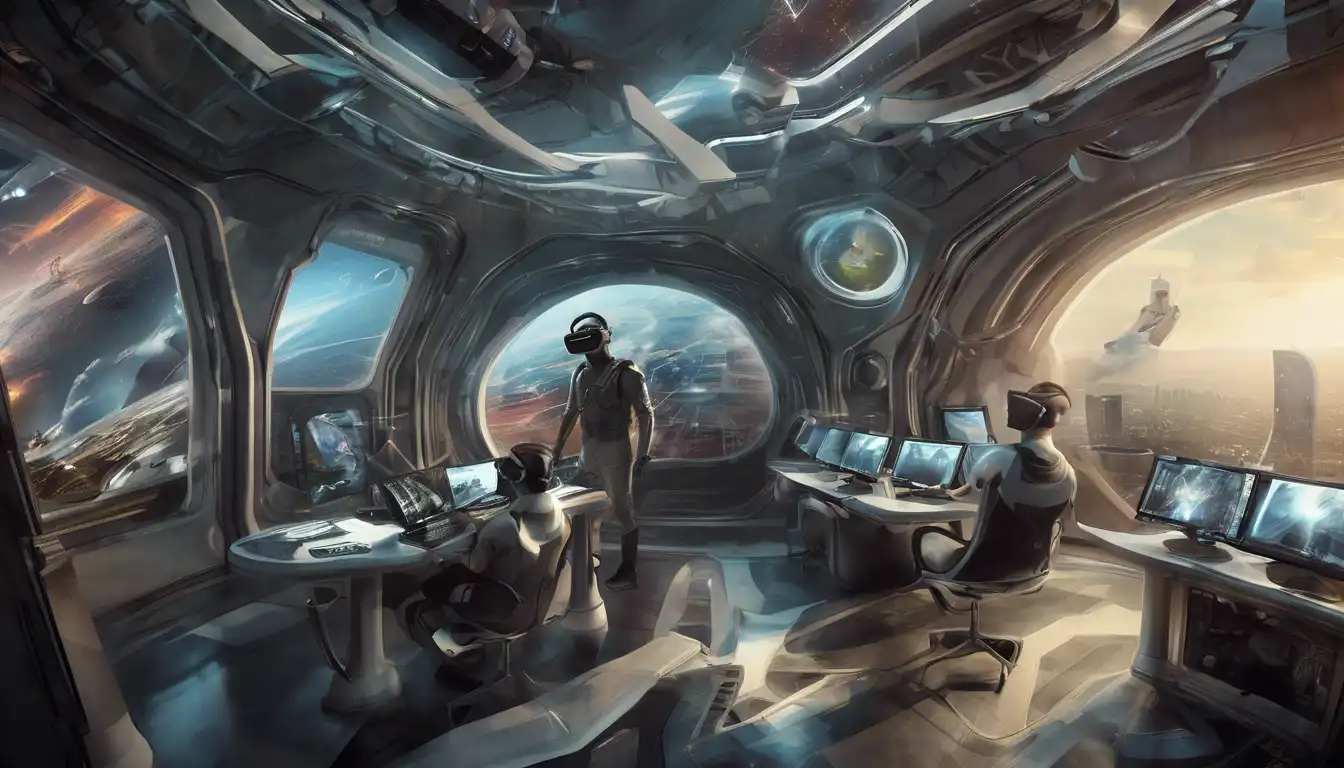Introduction to Virtual Reality
Virtual Reality (VR) is rapidly becoming one of the most exciting areas in technology today. With its ability to immerse users in a completely digital environment, VR is setting the stage for a revolution in how we interact with digital content. From gaming and entertainment to education and healthcare, the potential applications of VR are vast and varied.
The Evolution of Virtual Reality
The concept of VR is not new. It has been around for decades, but recent advancements in technology have made it more accessible and realistic than ever before. Today's VR headsets, such as the Oculus Rift and HTC Vive, offer high-resolution displays and precise motion tracking, creating a truly immersive experience.
Applications of Virtual Reality
VR is being used in a variety of fields, transforming traditional practices and opening up new possibilities. In the gaming industry, VR provides players with an unparalleled level of immersion. In education, VR can transport students to historical sites or simulate complex scientific phenomena. Healthcare professionals are using VR for everything from surgical training to patient rehabilitation.
- Gaming: Immersive gameplay experiences
- Education: Interactive learning environments
- Healthcare: Advanced training and treatment options
- Real Estate: Virtual property tours
The Future of Virtual Reality
As technology continues to advance, the possibilities for VR are endless. With the development of more sophisticated hardware and software, VR is expected to become even more immersive and interactive. The integration of artificial intelligence and VR could lead to personalized virtual experiences, tailored to the individual's preferences and needs.
Moreover, the rise of social VR platforms is creating new ways for people to connect and interact in virtual spaces. These platforms could redefine social media, making it more immersive and engaging.
Challenges and Considerations
Despite its potential, VR faces several challenges. High costs and the need for powerful hardware can limit accessibility. There are also concerns about the psychological effects of prolonged VR use, such as motion sickness and disorientation. Addressing these issues will be crucial for the widespread adoption of VR technology.
For more insights into the latest tech trends, stay tuned to our blog.
Conclusion
Virtual Reality represents a significant leap forward in technology, offering new ways to experience digital content. As VR continues to evolve, it will undoubtedly play a pivotal role in shaping the future of various industries. The journey of VR is just beginning, and its full potential is yet to be realized.
